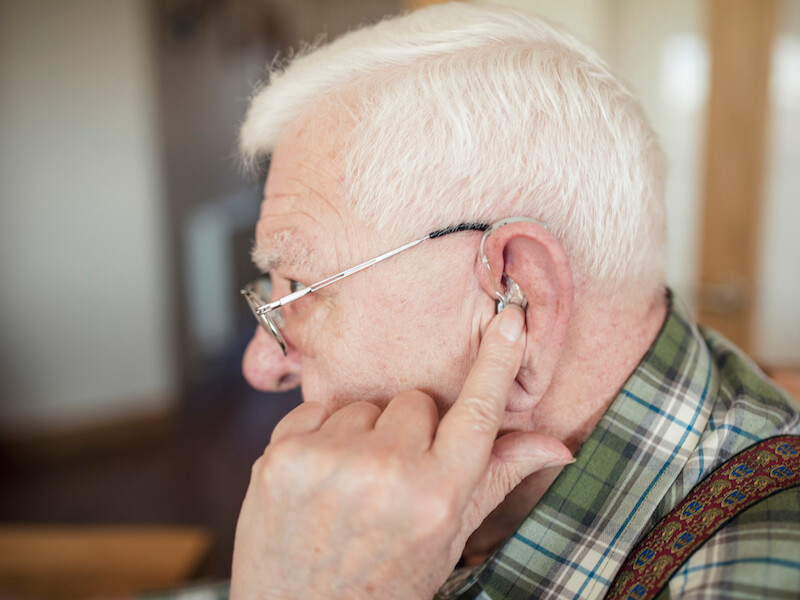
Do you feel as if your hearing aid batteries won’t keep a charge as long as they should? The reasons for this can be sometimes unexpected.How long should hearing aid batteries last? Anywhere from 3 to 7 days is standard. That range is pretty wide. So wide, actually, that it’s unpredictable and leaves you in a significant predicament. You may be on day 4 at the grocery store when unexpectedly, things get quiet and you can’t hear the cashier. Or it’s day 5 and you’re enjoying a call with friends when suddenly you find yourself feeling really alone because you can no longer hear the conversation. Now, you’re watching the TV. You can no longer hear the news. Wait, it’s only day 2. Yes, occasionally they even die before that 3-day mark. It’s more than a little inconvenient. You’re missing out on life because you don’t know how much juice is left in your hearing aids. Here are the likely culprits if your hearing aid batteries die too soon.
Moisture Can Drain a Battery
There aren’t very many species that produce moisture through their skin but humans do. We do it to cool off. It’s the body’s way of purging the blood of sodium and toxins. In addition, you might live in a rainy or humid climate where things are even wetter. The air vent in your hearing aid can become clogged by this extra moisture and it will be less reliable. Moisture can also interact with the chemicals of the battery causing it to deplete faster. You can avoid moisture-related battery drainage with these measures:
- if your storing them for several days or more, take the batteries out
- Moist environments, like the kitchen or bathroom are not a good place to keep your hearing aids
- Obtain a dehumidifier for your hearing aids
- Before you store your hearing aids, open the battery door
Batteries Can be Drained by Advanced Hearing Aid Functions
You get a much better hearing aid now than you did even 10 years ago. But if you’re not keeping your eye on them, these advanced functions can cause faster battery drain. You can still use your favorite features. But keep in mind, you will have to replace the battery sooner if you are streaming music from your phone for hours. Bluetooth, multichannel, tinnitus relief, noise canceling — all of these extra features can drain your battery.
Batteries Can be Impacted by Altitude Changes
Going from a low to high altitude can deplete your batteries, specifically if they’re on their last leg. Bring some extra batteries if you are going on a plane or high up into the mountains.
Are The Batteries Really Low?
Some hearing aids tell you when the battery is low. These warnings are, ordinarily, a “heads up”. It doesn’t mean you have a depleted battery. Furthermore, the charge can sometimes drop temporarily due to altitude or environmental changes and that can cause a false low battery warning. In order to end the alarm, take the batteries out, and then put them back in. The battery might last several more hours or even days.
Handling Batteries Improperly
Wait until you’re about to use your hearing aid to pull the tab from the battery. Always wash your hands before touching your hearing aids or batteries to avoid getting dirt or hand oil on them. Never freeze hearing aid batteries. It doesn’t increase their life as it could with other types of batteries. Hearing aid batteries may lose battery power faster if you make these simple handling mistakes.
Buying a Year’s Supply of Batteries Isn’t a Good Plan
Buying in bulk is often a smart money decision if you can afford to do it. But as you come to the end of the pack, the last few batteries most likely won’t be at full power. Unless you’re fine with wasting a few, try to stick to a six month supply.
Buying Hearing Aid Batteries on The Web
This isn’t a general critique of buying things online. You can get some great deals. But some batteries that are available online are being sold by less honest people and are close to their expiration date. Or even worse, it has already passed. So buyer beware.
Both alkaline (AA, AAA, etc.) and zinc hearing aid batteries have an expiration date. You shouldn’t buy milk without checking the expiration. You should do that with batteries also. Make sure that the date is well in the future to get the most use out of the pack. It’s probably a smart idea to message the vendor if you don’t see an expiration date or better yet, come see us for your battery needs. Only buy batteries from trusted sources.
Modern Hearing Aids Are Rechargeable
Hearing aids could drain too rapidly for numerous reasons. But you can get more life out of your batteries by taking some precautions. If you’re in the market for a new pair of hearing aids, you might consider a rechargeable model. If you charge them while you sleep, you get a full day of power the next day. And you only need to change them every few years.